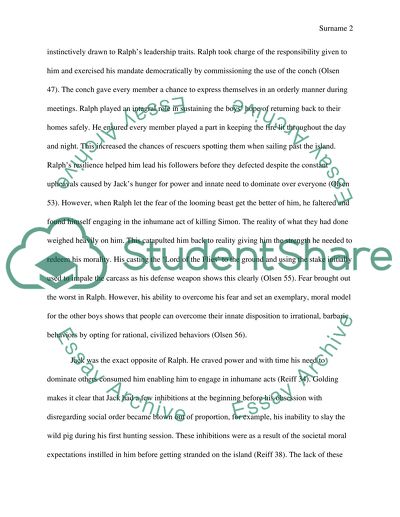Cite this document
(“Lord of the Flies Research Paper Example | Topics and Well Written Essays - 1500 words”, n.d.)
Retrieved from https://studentshare.org/literature/1455903-lord-of-the-flies
Retrieved from https://studentshare.org/literature/1455903-lord-of-the-flies
(Lord of the Flies Research Paper Example | Topics and Well Written Essays - 1500 Words)
https://studentshare.org/literature/1455903-lord-of-the-flies.
https://studentshare.org/literature/1455903-lord-of-the-flies.
“Lord of the Flies Research Paper Example | Topics and Well Written Essays - 1500 Words”, n.d. https://studentshare.org/literature/1455903-lord-of-the-flies.


